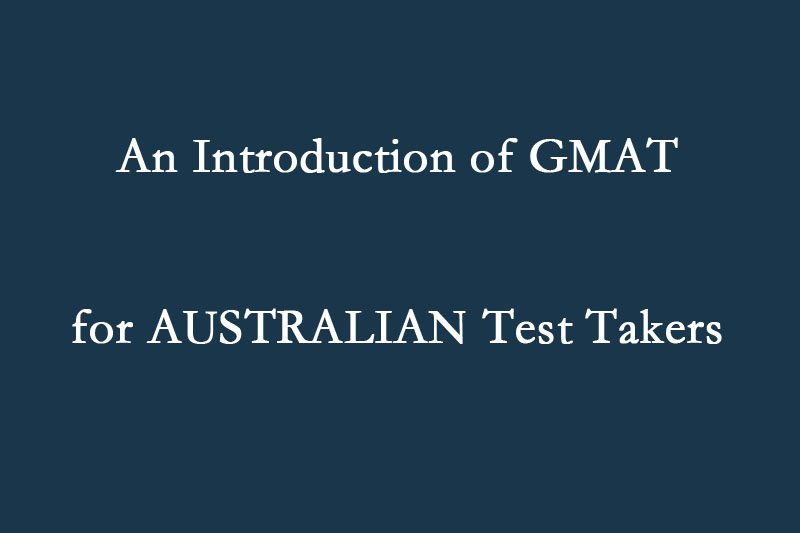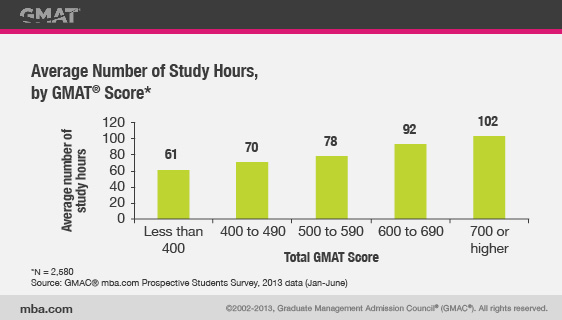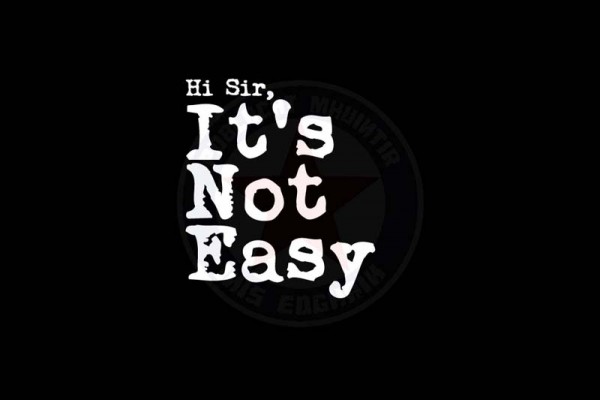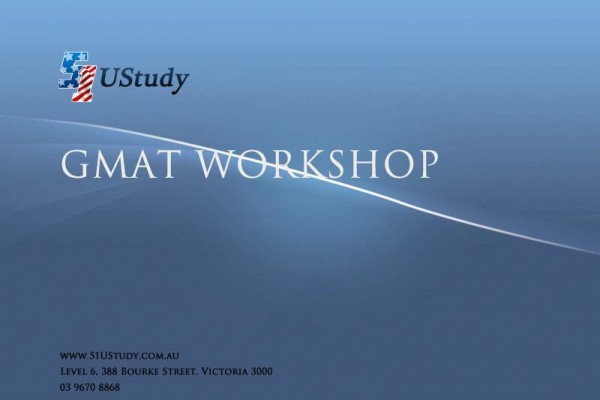GMAT is not as a big thing in Australia as in many other countries where it is a compulsory test for business school admission. “I had never heard of it until I visited the admission page of the business schools I want to get into!” If I ask you when you heard the name of GMAT for the first time, it could be your answer as well. Obviously Australian test takers need a more personal introduction of GMAT, and there you go: an introduction of GMAT for Australian test takers.
1. What is GMAT?
GMAT is short for Graduate Management Admission Test. So we may know the following things:
A. It is for graduate, or postgraduate, education.
B. Management implies that GMAT is a specialized test for business school candidates.
C. Admission tells the purpose of the test: for admission purpose. GMAC (the administrator of GMAT) claims that: GMAT scores are reliable and predict academic success. That is a reason why business schools all over the world request you to provide your score. As an experienced GMAT trainer, a business graduate myself, and a business admission consultant who has helped quite a few students admitted by top business programs, I can vouch that GMAT has done all what a standardized test can do and is therefore the best and most efficient predictor for business school success that can exist.
D. It is a test, of course. It is also a computer adaptive test, which contains four parts, i.e. Analytical Writing Assessment (AWA), Integrated Reasoning, Quantitative, and Verbal. Both Analytical Writing Assessment (AWA) and Integrated Reasoning have a separate score ranging from 1 to 6 and from 1 to 8 respectively. The Quantitative and Verbal sections have a compound score out of 800.
2. Why do I need GMAT?
To answer this question we may need to go through what components a standard business application package consists of and why each component is needed.
- Application form: it tells admission committees (AC) your basic information.
- Transcript(s): it tells AC how you achieved academically in your previous education.
- Resume: the compilation of your professional experiences reveals what you have achieved in your previous roles.
- Personal statement and/or essays: they explain why you want to pursue a graduate business education at this moment and why you want to join particular school. Trust me, they are important than you expect.
- Recommendation letters: a third-part verification of your academic and professional capacity.
- Now GMAT. Without GMAT, business school AC will never know whether your academic potential can reach their requirement. Although transcript is another indicator, candidates all come from various background, transcripts are not entirely comparable or even useful.
At the same time, GMAT is so business school adapted that they test the particular skill sets critical for graduate business study; for example, critical thinking, quantitative skills, and reading comprehension of a wide range of topics.
3. Does GMAT test anything I have learned in Uni?
Basically no. One of the principles of GMAC is to make sure GMAT fair and appropriate for every single test taker. Therefore it never tests knowledge covered by any specific major only. If you are thinking because GMAT is for business education, I would have some advantage because I major in commerce, you are wrong. Just remember, it is fair for everyone. Nevertheless the critical thinking, multitasking, time management, reading comprehension, data analysis, and many other similar skills you have obtained in both Uni and workplace are very handy.
4. How hard is the quantitative section?
I guess it is your question right now in your mind. “I have never touched math since high school” many of my students complain that. First of all, you should not be worried too much because GMAT is fair for everyone it does not test any advanced mathematics skills like calculus or linear algebra. What you should be worried is that you need time to spend much time picking up your high school level math knowledge and skills by practicing past questions again and again.
5. How easy is the verbal section?
GMAT is not a language test; therefore even if you are a native speaker, you still cannot treat the verbal section as a freebie. Generally each type of verbal questions has its own tricks: the one of Reading Comprehension is the topics and comprehensive argument structure, the one in Critical Reasoning is the logic flow, and the one in Sentence Correction iseffective expression plus preciseness of your usage. So you still need some decent work.
6. How should I prepare for GMAT
And if you treat GMAT as a final exam, you could feel stuck in your preparation very soon. GMAT has no textbook and GMAC only provides you past questions in the forms of Official Guide or GMATPrep software. So my first suggestion is to use these past questions wisely. If you run out of them but have not find your way out, you are into another trouble.
When practicing, try to find the essences, the reasons why these questions are asked and what particular knowledge and skills they intend to test. Once you summarize your essences, find the rules related and uses them in further past questions. If they work, bingo; if not, the essences you find may not be appropriate or you need to further polish your rules until they can be used in most questions.
7. What score do I need?
GMAT matters a lot in business school admission nowadays. The following is the average GMAT score of top MBA programs worldwide.
| Rank in 2015 | School | Average GMAT |
|---|---|---|
| 1 | Harvard Business School | 730 |
| 2 | London Business School | 700 |
| 3 | University of Pennsylvania: Wharton | 725 |
| 4 | Stanford Graduate School of Business | 732 |
| 4 | Insead | 702 |
| 6 | Columbia Business School | 716 |
| 7 | Iese Business School | 670 |
| 8 | MIT: Sloan | 713 |
| 9 | University of Chicago: Booth | 723 |
| 10 | University of California at Berkeley: Haas | 714 |
| 11 | Ceibs | 692 |
| 12 | IE Business School | 672 |
| 13 | University of Cambridge: Judge | 680 |
| 14 | HKUST Business School | 669 |
| 14 | Northwestern University: Kellogg | 715 |
The ranking comes from Financial Times
Remember: even if you have reached their average score, improvement of your score will still act as an edge in your application.
8. How long do I need to prepare?
The chart prepared by GMAC says a lot.
Our experience of tutoring GMAT in Australia tells us 80 to 100 quality hours of preparation is needed for a test taker with decent quantitative and verbal skills to reach 700.
The reason why I add “quality” here is that you have to concentrate yourself while preparing GMAT because finding the essences and rules of GMAT are not so easy and improving through practice asks you to keep thinking of why you make it correct or wrong one question after another. If you cannot focus, you need much more than 100 hours without any guarantee that you can reach 700.
9. Some facts about GMAT that may surprise you
A. You can take the tests virtually every working day but you cannot take it more than once within 31 calendar days or more than five times in a 12-month period.
B. Schools you apply to can see all your scores within the last five years.
C. You cannot go back to the questions you have answered or skip any question.
D. If you answer one question correctly, the computer will probably select a question in higher difficulty level for you to answer next, vice versa.
E. Your score is not calculated by the number of correct questions but decided by the difficulty percentile after you answer the last question in each section.






